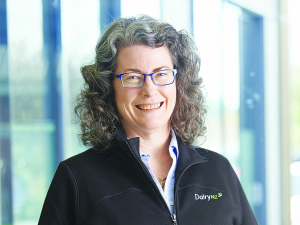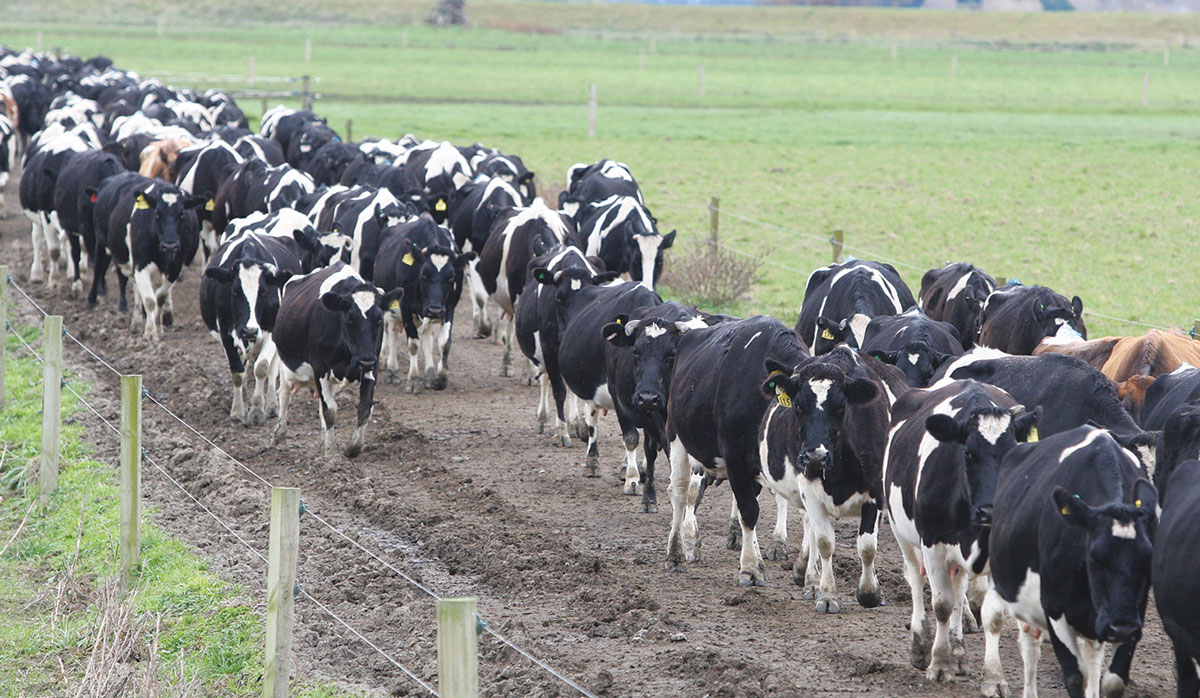Covid spreading to farms
Some dairy farmers, their families and workers, have contracted Covid, according to DairyNZ's general manager for the farm performance team, Sharon Morrell.
 DairyNZ's Sharon Morrell says killing space is at a premium at many works and if the dry weather continues, the problem will only get worse.
DairyNZ's Sharon Morrell says killing space is at a premium at many works and if the dry weather continues, the problem will only get worse.
If you're thinking about whether you should cull a few cows, err on the side of caution by doing it sooner rather than later, says DairyNZ general manager of farm performance Sharon Morrell.
Morrell warns that killing space is at a premium at many works and if the dry weather continues, the problem will only get worse.
She says up until December, most regions, especially those in the North Island, got rain and that allowed them to push forward with feed.
"But now, for most regions, the dry is setting in and some farmers are feeding out to supplement pasture. Production is down by between three and four percent but the exception is Southland where they are ahead on production figures for last year for the season, although the daily volume of milk is now dropping as it gets dry, especially around South Otago," she says.
Morrell says with the onset of the dry spell there is an appetite from many farmers to go to some form of flexible milking arrangement, such as three and two, ten and seven or perhaps even once a day milking. She says it is also recognition that the first several months of the season have been pretty busy, also with staffing pressure.
"So, I think this is a case [of], we have got to Christmas, so let's do what we can to kick back a little bit," she told Dairy News.
"This is especially so for farmers across the country where they have had staff shortages and have now resigned themselves to getting through the season. They are not hunting hard for labour at the moment but will be looking to get people in for next season," she says.
Morrell doesn't believe the shortage of labour has affected production too much. She says at the start of the season people put in a lot of effort because a lot is at stake then. She says they pulled out all the stops and made the best of the peak milk flow.
The Heat Is On!
Another issue that looms now with the dry weather, says Sharon Morrell, is the effect of heat stress - both for people and stock. She says farmers should look at managing milking times so that cows aren't walking to the milking shed in the heat of the day.
 |
|---|
|
Farmers should look at managing milking times so that cows aren't walking to the milking shed in the heat of the day. |
"That can cause a drop in production and there is plenty of advice on that on the DairyNZ website," she says.
With many farmers moving to more flexible milking schedules, Morrell says this is a good time of the year for them to review their operations and look closely at their budget - ideally seeing if they are able to pay off some debt.
While dairy farmers have managed the Covid crisis well thus far, Morrell says it is still on their minds with the threat of the omicron variant almost certainly to come into play soon. She says farmers are weighing up how they will deal with a situation where they or their staff have to take sick leave.
She says through the summer holiday period it has also been a factor.
"People have often stayed close to home and done day trips because of this," she says.
But it hasn't been all bad news. It seems that the 'surfing for farmers' events have proved very popular with many getting off farm and spending time with friends. And one report from Northland says that those farmers who run tourist operations in conjunction with their farming operations have had a great summer.
When it comes to arranging the sound system at Northland Field Days, no one does it better than Colin Finlayson.
A 40th Anniversary event to remember.
The Mountain Warrior Shane Cameron is coming back to his roots as key note speaker at the East Coast Farming Expo Property Brokers Evening Muster in February.
OPINION: The euphoria over the Government’s two new bills to replace the broken Resource Management Act is over.
While the recent storms in the upper and eastern part of the North Island have hit a few kiwifruit growers, it is unlikely to have a major impact on the overall industry.
Keratin biomaterials company Keraplast and Wools of New Zealand have signed a new superpremium wool contract which is said to deliver a boost to wool growers.
OPINION: Fonterra may be on the verge of selling its consumer business in New Zealand, but the co-operative is not…
OPINION: What does the birth rate in China have to do with stock trading? Just ask a2 Milk Company.